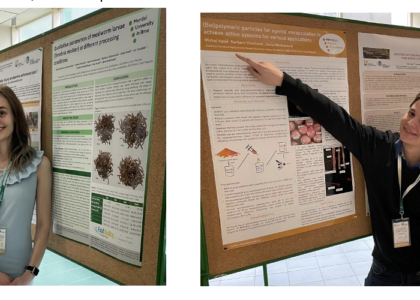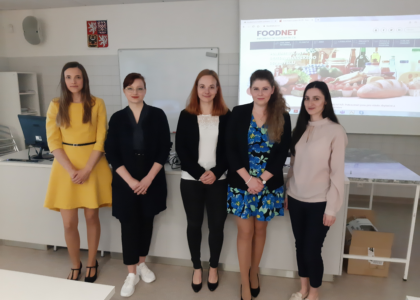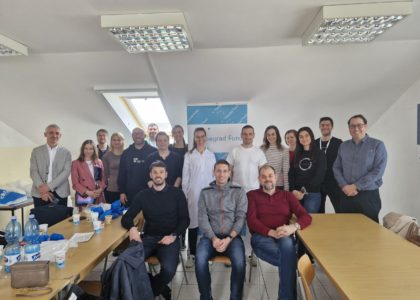On Friday, 19 July, a team of 3 researchers and 2 PhD students from Mendel University, working at the Deaprtment of Food Technology, presented the aims and outcomes of the project „FOOD Quality in the Digital Age“ to representatives of the private sector from the Roztočilovi family beekeeping https://www.rodinnevcelarstvi.cz/. During the project presentation, each researcher and PhD student (Michal Kolar and Veronika Bozena Hendrychova) presented their involvement in the project and highlighted the benefits of international cooperation and mutual exchange of experience. Associate professor Sona Hermanová presented applications of modern 3D printing technology in the field of beekeeping. The advantages and disadvantages were discussed. Presentation was followed by practical training of 3D printing. Various edible matrices were printed, and the participants were trained to handle with the equipment. This was followed by a discussion on the possibilities of using 3D printing in the processing of honey and other bee products, especially beeswax, e.g. making moulds for casting beeswax confectionery or moulds for casting personalised beeswax products. In addition, the possibilities of making cartridges with bee product ingredients were discussed.

During a visit of the bee farm, the MENDELU team learned about the traditional ways of keeping bees in carved wooden hives, as well as the ways of modern beekeeping. In the section devoted to honey processing technology, the whole process of honey extraction was introduced, from the harvesting of frames, their uncapping, honey extraction with an electric honey extractor, to the final packaging. The quality parameters of honey and the factors influencing them were also discussed. The whole production portfolio of beekeeping was presented, including types of honey and specific technologies to produce paste honey (honey with a creamy consistency, without crystallisation and easy to spread). Moreover, the use of other bee products – pollen, royal jelly was discussed with the attention paid to the recycling of beeswax for apiary needs and processing into decorative items such as candles. The apiary uses renewable energy – a solar melter – to process beeswax.

A nice bonus at the end of the meeting was learning about the use of bees for apitherapy in the form of Apidomek, which allows people to benefit from the positive effects of being near beehives – the air from the hive is rich in volatile substances from honey, wax, propolis and pollen, which can have a beneficial effect on the respiratory system; the buzzing of bees has a calming effect, helping to reduce stress and anxiety.
The training and practical workshop helped to link the academic and private sectors, establish contacts and outline plans for possible future cooperation.

The project is co-financed by the Governments of Czechia, Hungary, Poland and Slovakia through Visegrad Grants from International Visegrad Fund. The mission of the fund is to advance ideas for sustainable regional cooperation in Central Europe.




